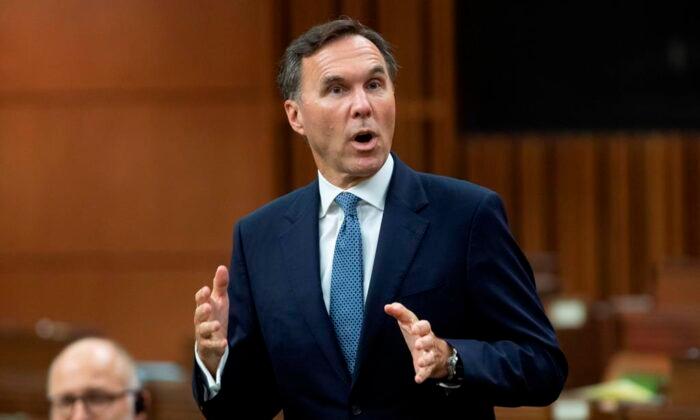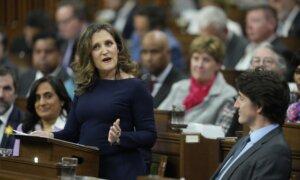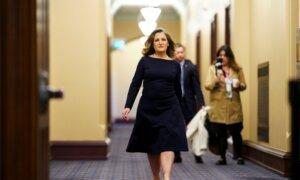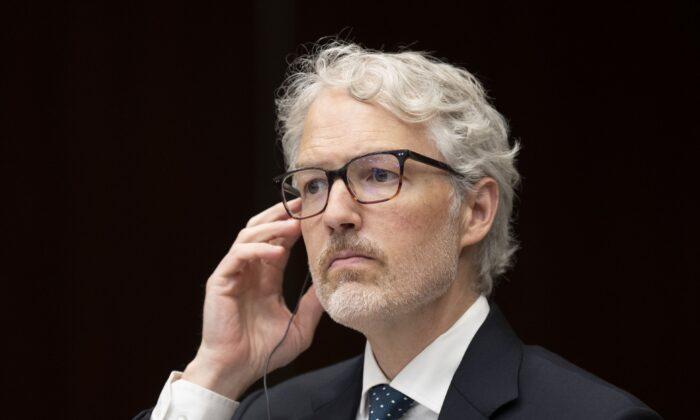A former federal finance minister is slamming parts of the federal budget presented on April 16.
Bill Morneau was the Trudeau Liberal government’s finance minister from 2015 to 2020. He said there was talk of increasing the tax on capital gains while he was on the job, but he pushed back because he feared it would discourage investment.
“This was very clearly something that while I was there, we resisted,” Mr. Morneau said on a post-budget webcast hosted by accounting firm KPMG on April 17. “And we resisted for very specific reasons—concerned about the growth of the country.”
Mr. Morneau said what will likely happen now is that investors and companies will think twice before investing in Canada.
“This is clearly a negative to our long-term goal, which is growth in the economy, productive growth, and investments,” he said. “So that’s a challenge that we’re going to face as a result of this budget.”
“Inclusion rates are something that investors worry about a lot,” he added. “They want to know that the returns from their investment will be reasonable.”
‘We’ve Created a Disincentive’
The capital gains tax increase was touted by Finance Minister Chrystia Freeland as a way to make the tax system more fair, especially for younger Canadians who are falling behind the economic status of their parents.Mr. Morneau notes that “we’ve created a disincentive, and that’s very difficult. I don’t think there’s any way to put a sugar coating on top of it.”
“We need to think about the future and we need to think about the fact that Canada is not growing at the pace that we need it to grow. And if you can’t grow the size of the pie, it’s not very easy to figure out how to share the proceeds,” said Mr. Morneau.
“The real challenge we have is not enough investment in our economy. And that’s why the capital gains inclusion rate change is, for me, opposite in terms of the direction we should be going. It’s actually reducing the incentive to invest,” he said.
Not everyone is critical of the increase in the capital gains tax. For example, the Canadian Labour Congress (CLC) praised it.
“This government does show some reductions, but I would argue they haven’t gone far enough. It needs to go further,” he said. “Back in 2019, the last time I did a budget, we were projecting in that year $19.8 billion deficit. Now we’re projecting more than twice that, so we’ve really gone in the opposite direction.”
He said both the federal government and provincial governments need to look at ways to reduce spending.
“The government needs to think about not only its spending, but also the provincial government spends. We’ve seen significant increases in provincial government spending,” he said. “And that is obviously working against the central bank’s goals of reducing inflation.”
But for Mr. Morneau, the biggest issue is the need for Canada’s economy to grow faster than it is.
“But I think the big picture takeaway is that we haven’t focused enough on growth. And for me, that’s the fundamental concern,” he said.







